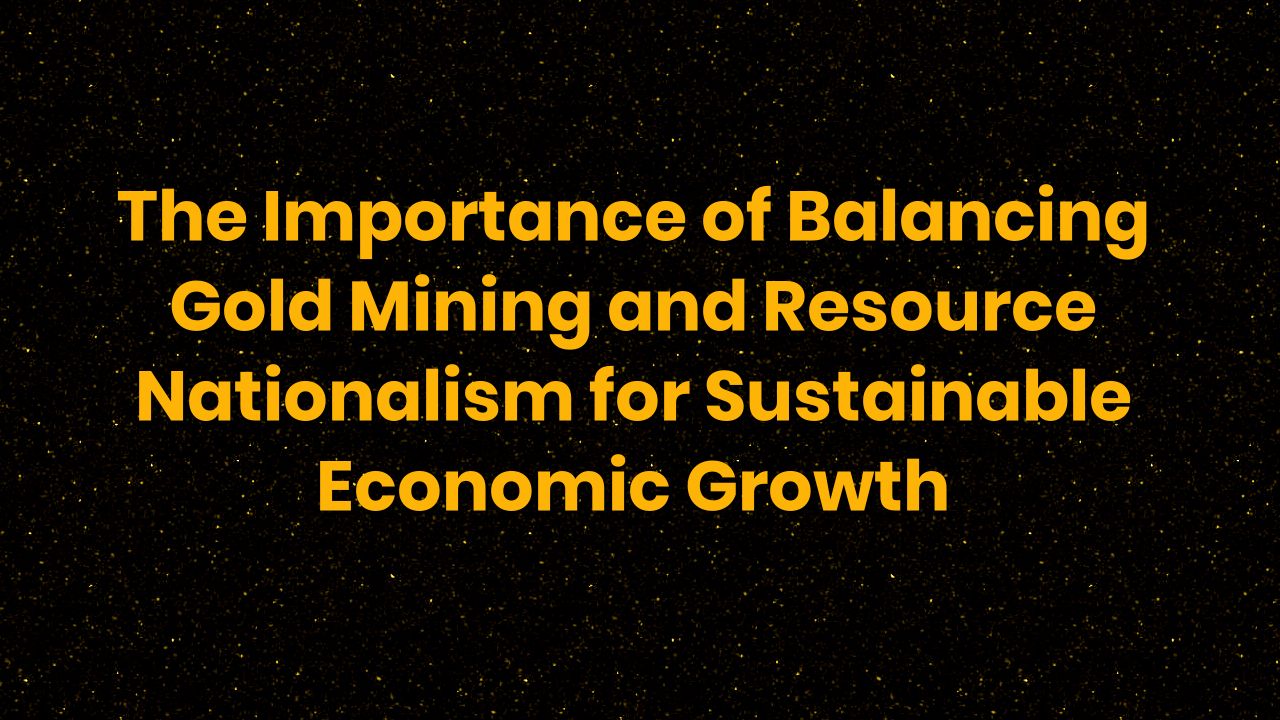
Table of Contents
The Role of Gold in Global and National Economies
Gold has long been considered a symbol of wealth and status, and its value has made it an important commodity in global and national economies. Gold is an important component of trade and investment portfolios and is used in various industries including electronics, aerospace, dentistry, and medicine. The demand for gold has remained steady, making it an attractive investment for mining companies and host countries alike.
The Potential Benefits of Gold Mining for Host Countries
Gold mining projects can provide significant economic benefits for host countries, including job creation, infrastructure development, and tax revenue generation. Mining companies often invest in local communities, providing education, healthcare, and other services that contribute to social and economic development. Successful gold mining projects can also boost tourism and other local industries.
The Risks of Resource Nationalism for Gold Mining Projects
Resource nationalism is the tendency of host countries to assert greater control over natural resources and increase their share of profits from mining projects. While it is understandable for countries to want to benefit from their natural resources, excessive resource nationalism can deter foreign investment and hinder economic growth. Nationalization of mining companies and increased taxation can create uncertainty for investors and make it difficult for mining projects to proceed.
Strategies for Balancing Nationalism and Investment in Gold Mining
To achieve sustainable economic growth, it is essential to balance the interests of mining companies and host countries. Mining companies can work with local governments to negotiate fair agreements that provide benefits for both parties. Investing in local communities and building strong relationships with stakeholders can also help to mitigate the risks of resource nationalism. Host countries can create a stable investment environment by implementing clear and consistent policies and regulations, promoting transparency, and fostering a culture of cooperation and collaboration.
Examples of Successful Gold Mining Projects in Host Countries
Several countries have successfully balanced resource nationalism and investment in gold mining projects. The Australian mining industry, for example, works closely with the government to ensure that mining activities comply with environmental and social regulations. Ghana has attracted significant foreign investment in its gold mining industry and has implemented policies to promote local content and job creation. Peru has also successfully attracted foreign investment in gold mining while promoting social and environmental responsibility.
Conclusion and Recommendations for Sustainable Development in Gold Mining
Balancing resource nationalism and investment in gold mining projects is essential for sustainable economic growth. Host countries must create a stable investment environment that promotes transparency and cooperation and ensures that mining activities comply with environmental and social regulations. Mining companies must work with local communities and stakeholders to mitigate the risks of excessive nationalism and promote social and economic development. Through cooperation and collaboration, the gold mining industry can contribute to the development of host countries while also providing benefits for investors and society as a whole.





